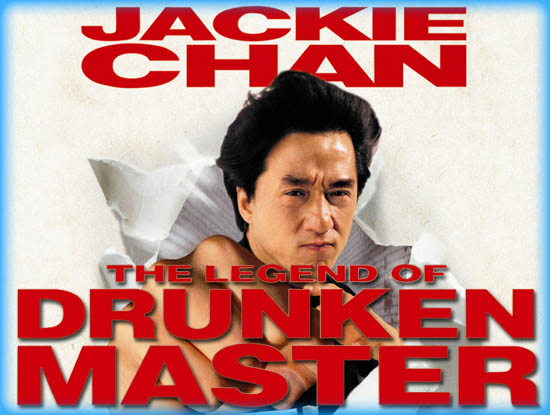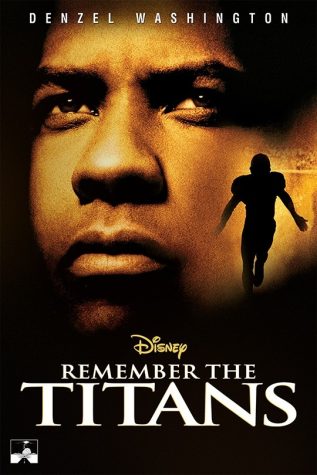RETRO REVIEW: The Legend of Drunken Master

The Legend of Drunken Master (or Drunken Master II as it is titled in China) is a Chinese movie released in 1994 (2000 for America), and easily ranks as one of the most entertaining movies I have ever seen.
It has moments of comedy, seriousness, awesome stunts… it really has a lot going for it. There were moments I laughed aloud, moments I widened my eyes and held my breath, and moments that had me wondering just what exactly I was watching.
It’s wonderful.
The Legend of Drunken Master’s cast is helmed by Jackie Chan, who plays Wong Fei-hung, the young martial artist with an alcohol problem and who is the son of Wong Kei-ying, the strict but wise pacifistic head of the household, played by Lung Ti.
Joining this adventure are Anita Mui, who plays Ling, Fei-hung’s step mother who enjoys gambling on games of Mahjong and defying her husband, and Chi-Kwong Cheung, who plays Tso, the Wong household’s servant.
Before I begin, I do want to say that, because this is actually a sequel (at least, it is in China) some things aren’t really explained, like where or why Fei-hung learned and practices the “Drunken Boxing” Martial arts style, as that is explained in the first film, Drunken Master, released in 1978.
That said, it doesn’t really matter, because there isn’t really anything you need to know going in, but there is some confusion because of the difference in naming, but this movie is, in fact, a sequel.
Starting off, the characters are pretty cool.
Kei-ying, is very much the stern Chinese father that you would expect him to be, going so far as to even disown his son for dishonoring the family name during a very heated scene in which he repeatedly whips Fei-hung and even attempts to literally drown him in wine by pouring a large container of wine down Fei-hung’s mouth until he chokes.
Though, after a brief fight between the two, he does realize he went overboard in anger and orders Tso to chase after the runaway Fei-hung.
He is also the wise sage that he is expected to be, offering the vague but highly applicable advise that “A boat sails in water, but it can also sink in it,” a lesson that Fei-hung must learn over the course of the movie.
Along that same vein, even though Chinese culture sets up the head of the household to be the ultimate authority, Ling’s belief about that ideal can be summed up with the expression: “The mice will play when the cat is away.”
While she never openly defies him, she certainly has no problems with undermining his authority when he isn’t there.
For example, in Ling’s very first scene, she is shown fluttering her hands about, as if she were performing a martial arts ritual, only for it to be revealed that she is laying down Mahjong tiles, gambling and winning, if the bemoaned reactions of her friends are anything to go by.
Once she is alerted that her husband has arrived, she hurriedly hides the tiles and props up her friends as ill patients she is tending to.
Shortly after that scene, a patient of Fei-ying’s arrives, asking for ginseng (which Fei-hung accidentally lost on the train). Covering for Fei-hung, she proceeds to give the man a giant ginger root, but Fei-ying foils her plan.
She then decides that the next best idea is to rip out a root from one of Fei-ying’s centuries old bonsai trees and disguise it as ginseng.
There are several other examples I could have put that display’s Ling’s defiance, but it is made clear right from the get-go that Ling is very much her own woman.
The plot of the movie is one that actually surprised me.
I have never seen a kung fu movie before, so I went in to it expecting nothing but mindless fighting (because that is what it looks like from an outside perspective), but it turned out to actually have a pretty serious plot and message.
There are sort of two plots going on in the movie, and the first is Fei-hung learning restraint (in both martial arts and drinking) with the second being the stealing of Chinese artifacts by the British consulate.
It strikes a nice balance between comedic and serious and the movie handles it perfectly in my opinion.
Firstly, with this being a mostly comedic movie, there are so many moments I could talk about.
Such as when Fei-hung and his father are playing some sort of game (I am unsure of what it is actually called), but when Kei-ying is distracted, Fei-hung rearranges the board with lightning fast speed and when called out on the board’s sudden transformation in Fei-hung’s favor, he gleefully exclaims “We call it cheating!”
There are honestly so many more moments I can talk about that are so ridiculous that it’s hilarious.
I don’t want to spoil it all, but I will talk about one fight.
When the antagonist’s goons steal Ling’s purse, Fei-hung naturally gives chase to deliver some street justice. Up until this point, I didn’t know that the “drunken” part of Drunken Boxing actually required you to be hammered, but in this scene, Ling and her friends quickly gather several bottles of alcohol, ranging from wine to spirits, and they start tossing them at Fei-hung who then begins chugging each and every bottle he catches, even chugging from two broken bottles at once… the man sucks it down like water!
But that’s okay because it gives him this sort of superpower in which he becomes unstoppable.
It’s not a good message for the kids at home, but it is absolutely hilarious.
Hopefully he also has the superpower of having an indestructible liver, otherwise he’s in for a rough road.
In that same fight, Ling asks Fei-hung what it means when there is a skull on the bottle, and the camera turns to Fei-hung (who is obviously sloshed) as he hiccups out “It means it’s good stuff!”
There are plenty of other moments like that throughout the movie, but it’s moments like that that make this movie for me — the moments of lightheartedness in the middle of a serious moment, and it’s even better that these moments don’t feel forced either.
I don’t want to spoil the movie, but I do want to talk about one stunt in the final fight.
While Fei-hung is fighting Fo Sang (played by Kar Lok Chin), Fo Sang actually kicks Fei-hung onto a bed of burning coals.
I was pretty invested into the movie at that point, and I was completely taken aback as I thought the burning coal bed was a nice piece of scenery.
Nope, they actually used it, and apparently that stunt was real.
In the outtakes during the credits, they show that clip and immediately after Jackie Chan pulls himself out, members of the production crew are seen tending to him with fire extinguishers.
On the surface, The Legend of Drunken Master would appear to be a simple kung fu movie, like I had originally thought it was.
However, digging a little deeper shows that it is more than that, with its characters that poke a little fun at Chinese ideals in both lighthearted and serious manners, and its overarching plot that paints a very clear message that art contains the identity of a culture, that art is something more than just something pretty to look at in a museum, art is something that people can connect to.
Final Rating: A
With all of this said, I would definitely recommend giving The Legend of Drunken Master a watch. If you have never seen a kung fu movie before, then this is probably the best place to start.









